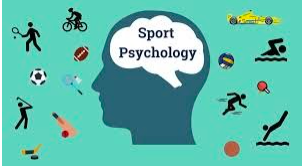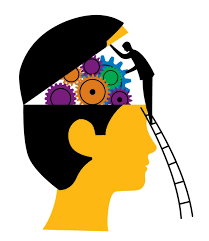Mon-Sat 9am-7pm








Clinical psychology is a specialized field that focuses on the diagnosis and treatment of mental health illnesses. Examples of illnesses this field encompasses include behavioral and emotional conditions.
Those who work in this area often perform assessments and diagnoses and oversee the maintenance of a patient's mental health statute. Clinical psychology is a comprehensive study of mental and behavioral conditions in individuals of various ages and backgrounds.
Clinical psychologists treat both mental and behavioral health conditions for individuals, couples and sometimes groups of people. They also conduct research in the area of mental and behavioral health and often publish that research. Additionally, they perform psychological assessments and tests for individuals, businesses and health care organizations.

Before you begin your bachelor's degree program, you should check the admission requirements for your graduate program. This will ensure that your four-year degree includes the prerequisites for entry into a doctoral program in psychology. It's also vital you maintain your grade point average (GPA) throughout your undergrad program, as many schools have a minimum GPA for admittance.
Your master's program will allow you to zero in on the area you plan to specialize in as a clinical psychologist. You'll take extensive courses in that practice, such as rehabilitation, psychoanalysis, or clinical health. You may also gain valuable experience in the field or in research as you complete your master's program. Depending on your state's requirements you may be able to practice psychology once you earn your Master's degree.
There are two doctoral degrees accepted for clinical psychologist licensing: Doctor of Psychology (PsyD) or Doctor of Philosophy in Psychology (PhD in Psychology). Basically, the difference is a PsyD is concerned primarily in the straightforward practice of psychology while the PhD in Psychology is for students interested in academia and research as well as clinical practice. Both are intense programs, but the PhD in Psychology has a higher standard of acceptance as well as a more difficult curriculum. During your doctoral program you will most likely focus on one or more areas of specialization as set forth by the American Psychological Association (APA).
Depending on your degree choice and the state regulations, you will be required to complete one to three years of internship or residency. Many schools offer this as part of their degree program and via a post-doctoral supervised work program, so you should understand the requirements in your state and what experience your graduate school offers as part of the program.
Along with supervised experience, most states require you sit for and pass an exam before granting licensure, which is why it's so important to be aware of your state requirements while planning your education. It's also an excellent plan to earn certification in one or more of the 13 specialty areas through the American Board of Professional Psychology to showcase your proficiency in the area you plan to practice.
Most states require licensed psychologists to complete specific continuing education requirements each year in order to be eligible for license renewal. Depending on your state, these may be completed by attending classes, conferences, and seminars or online courses, webinars, and similar educational studies. You can also utilize these requirements to obtain certification in one or more specialty areas as you progress through your career.
Behavioural Health Psychologist: The behavioural psychology definition can be a study of the connection between our minds and our behaviour that depicts how we react depending on the thought process of the mind. Behavioural psychology is also known as behaviourism. Behavioural health psychologists usually work in person and group environments with clients to help them manage behavioural problems such as depression. They will work as a mental health professional and have other career openings with having a master's degree. It is considered one of the best options for a career as a Clinical Psychologist.
Counselling Psychologist: Generally, in a counselling work environment, they would meet clients, and discuss issues in a very personal and non-threatening way. Counselling psychology is one of the major careers clinical psychology offers. Counselling psychologists might listen first and then develop skills. Clinical psychologists work with clients to enhance their well-being by resolving physical, emotional, and mental problems that have adversely affected their lives. Counselling psychologist is a major sub-discipline of various psychologist types.
Medical Psychologist: Medical psychology is defined as the application of psychological principles to the practice of medicine. It is clearly comprehensive instead of being drug-oriented, for both physical and mental disorders. Medical psychologists deal with patients whose conduct has a detrimental effect on their physiological functioning. In a clinical psychology setting, patients will be discussing issues such as preventing disease and safe health and lifestyle.
Neuropsychologist: Students who are willing to enter the field of neuropsychology need an advanced qualification in clinical psychology. The research focuses on attitudes and brain functions. The key task would be to assess the severity of brain injury or brain damage by measuring the cognitive capacity of a patient. Patients with impaired brain function/activity and cognitive disabilities should be assessed, examined, tested, diagnosed, and treated using a range of clinical tests, tools, and techniques.
Geropsychologist: Geropsychology is a specialization of psychology that aims to address older adults' issues. Mental health problems, anxiety and ageing, stress, and age-related illnesses also expand for neuropsychologists to provide psychological counselling for older individuals. Geropsychologist helps older people to lead healthy lives even into their older years by delivering psychotherapy and approaches to address a range of disabilities, ageing problems, and difficulties.
Child Psychologist: Clinical psychologists for children concentrate on diagnosing and treating mental illnesses ranging from addiction to anxiety. Such practitioners work in a clinical environment, typically in private practice, and sometimes in a hospital, and therefore are qualified to offer techniques to deal with difficult disabilities. They evaluate individuals and carry out tests, and also provide cognitive behavioural therapy for the patient. Child psychologist jobs can be found in hospitals, schools, rehabilitation centres and juvenile homes.
As a clinical psychologist, you can expect to make a good living. An entry-level clinical psychologist with less than one year of experience can expect to make around $70,000 a year. Your salary as a clinical psychologist will steadily increase from there. Factors that increase your salary will be your education level and your years of experience. Those who have been working for 20 years or more can expect to make somewhere around $100,000 a year. Having such a great earning potential is definitely a positive when weighing the pros and cons of being a clinical psychologist.
When you choose a career in clinical psychology, you will be able to work in a multitude of settings. A career in academia may be an option if you enjoy teaching. You could work as a counselor in the academic setting as well. Other settings you may find yourself working in are hospitals, private practices, psychotherapy centers, research centers, nursing centers, and rehabilitation facilities, to name a few. Having so many different environments that you could work in is definitely one of the advantages of being a clinical psychologist.
As a clinical psychologist, you will be able to arrange your day and patients as you see fit. Having such flexibility is one of the top pros of being a clinical psychologist. This is especially true if you work in a private practice setting. Think about this, if you worked in academia, you would be following the school calendar. This would mean you would get school breaks off throughout the year.
Every day you will be working with patients and their families that have behavioral or mental health illnesses. By working with these patients and their families, you are bettering their lives. That is undoubtedly something to feel good about.
When you embark on a career as a clinical psychologist, you will not be completing the same tasks day in and day out. Your every day will be different. Your patients and their families will all have various reasons that they are seeking care for. Remember, variety is the spice of life and is one of the biggest advantages of being a clinical psychologist.
As a clinical psychologist, you will have a good amount of autonomy in your field. What this means for you is that you will be able to assess, diagnose and treat your patients as you see fit. I mean after all that education you have you should be proficient enough to treat your patients on your own.
Job security is a nice thing to have obtained in your life and is one of the pros of being a clinical psychologist. You never have to be wondering where your next paycheck is coming from. A career as a clinical psychologist means that you have chosen a field that is in demand. The demand for this field is expected to grow 3% by the year 2029. I know what you are thinking, wait that is only 3% growth. Yes, yes, it is but, it is growth in the positive direction which means that this is a field that requires your expertise.
:The first step you must complete to become a clinical psychologist is to earn your bachelor's degree. This degree will take you approximately four years to complete. Keep in mind that this bachelor’s degree is just the jumping-off point to a long education road to becoming a clinical psychologist.
After you complete your bachelor’s degree, you will then need to complete a master's degree. The minimum education requirement for the profession of clinical psychology is a master’s degree, you cannot even get your foot in the door without having successfully completed the graduate coursework. Now, some schools will require you to take the GRE even to be considered for their master’s in Clinical Psychology program. This will add even more stress to your life and even more time to complete the degree. You can expect anywhere from 1-3 years to complete a master’s program. I also want to mention that to complete your graduate work successfully; you will need to fulfill a thesis. This will require long hours of research and writing on your part.
If you want to further advance your education in clinical psychology or if you have aspirations to climb to the top of your career, you will need a Ph.D. or a Psy.D. A Ph.D. or a Psy.D will also be instrumental if you aspire to open your own practice one day. Earning a Ph.D. or a Psy.D will not only cost you more time, around 5-7 years but will also cost you more money making it one of the top disadvantages of being a clinical psychologist.
Many clinical psychology programs will require that you successfully complete an internship or practicum component of your education. Depending on where you plan to obtain your license to practice, you may need to complete an internship or practicum in order to be allowed to sit for your exam. Essentially when you are in the process of completing your internship or practicum, you will most likely not be paid for your services. So, on one hand you are gaining experience and on the other you are working for free. For some people this is valuable time that they could be out in the workforce earning money and could potentially be one of the deal-breakers while weighing the pros and cons of being a clinical psychologist.
As we have discussed, you will have many years of school ahead of you if you plan on being a clinical psychologist. I just hope you know that all this schooling is not free. A bachelor's degree will cost you anywhere from $8,000 to $60,000 per year, and a master's degree in clinical psychology will cost approximately $9,000 to $30,000 per year. Finally, if you choose to pursue a doctorate degree, you will be looking at spending anywhere from $11,000 to $34,000 per year. This is sure going to add up. Let’s also not forget about your cost of living and other incidentals.
Clinical psychologists interact with clients and use interview techniques to gather information used to diagnose mental illness and disorders. They also counsel clients, engage in interactive therapies and produce detailed written reports or notes after each session. As a result, the clinical psychologist must understand sociocultural norms and communicate effectively with a diverse population, while protecting the client's privacy and adhering to ethical principles.
Clinical psychologists interpret the information they get from their clients from interviews, assessments and records; this information is evaluated against criteria that helps them identify and diagnose disorders. They must also be knowledgeable about therapies and skilled in developing effective need-based treatment plans. To be successful at this, clinical psychologists must demonstrate strong analytic skills. They must be good at solving problems, applying theory, evaluating options, making sound decisions and implementing solutions.
Clinical psychologists use objective research and methods that are scientifically backed when diagnosing and treating disorders, as stated by the American Psychological Association. While they do not need to memorize every theory or study, they need to be knowledgeable about general theories and understand how to interpret research and its findings. To interpret data and evaluate it objectively, clinical psychologists should be adept at using scientific thinking and reasoning when solving problems.
Soft skills for psychologists are very important in building rapport and earning trust. A clinical psychologist must be empathetic to a client's situation to develop the relationship necessary to treat the disorder. While the psychologist does not solve the client's problems directly, she needs to be able to gain the client's trust and commitment so she can help the client solve problems. A professional accomplishes this by providing emotional support, resolving conflicts and educating others.
Because clinical psychology is a research-oriented field of inquiry, a strong foundation in statistics is needed to analyze research findings using statistical software programs. They must be able to judge the reliability and validity of new research studies that inform their approach to psychotherapy. Clinical psychologists must also understand how to administer and interpret a battery of psychometric tests. Clinical psychologists routinely use specialized software for testing, scheduling and managing a private practice, according to the Occupational Information Network.
Call us at +91 9205084085, Monday - Friday, 9 am - 7 pm


